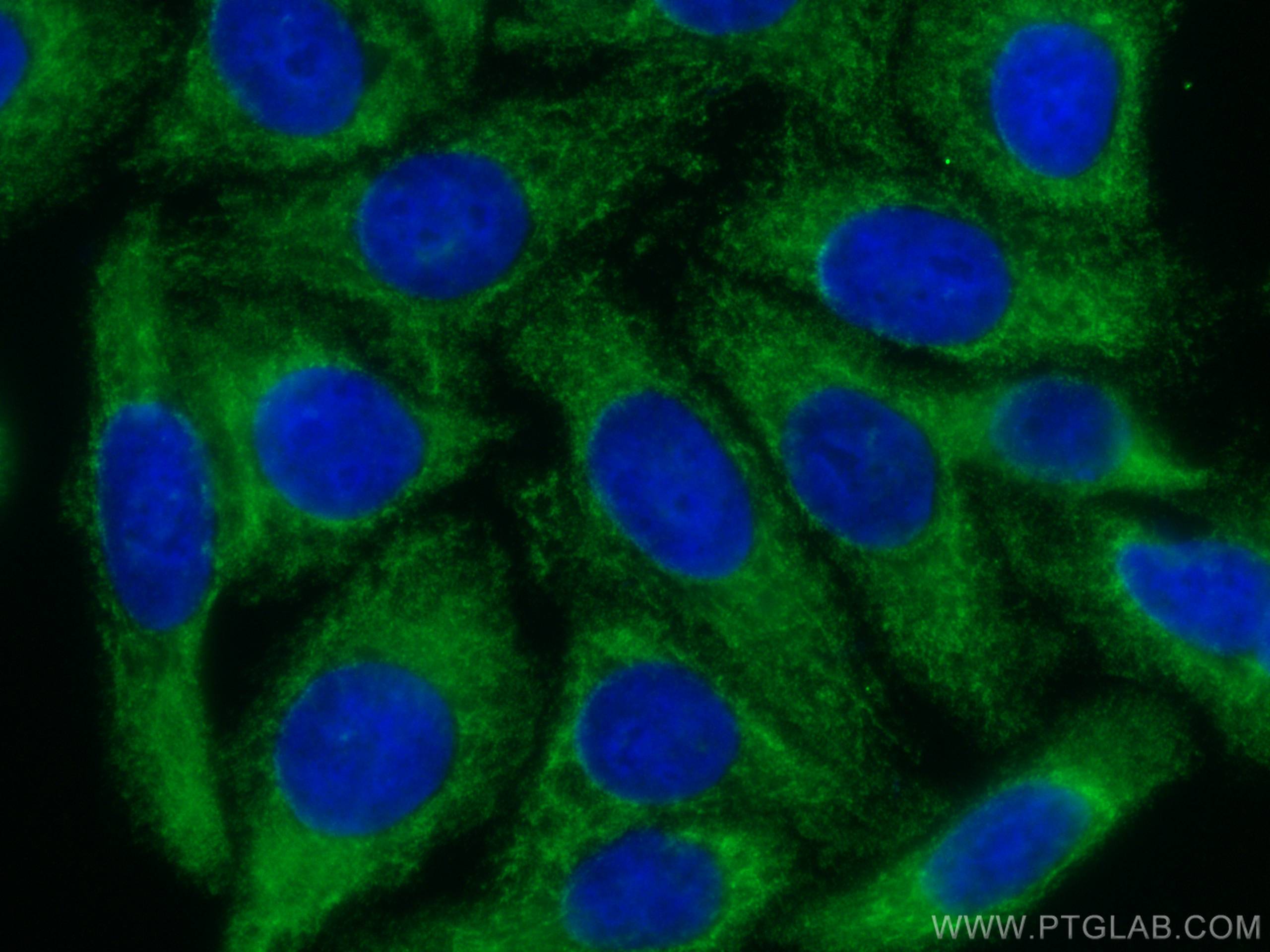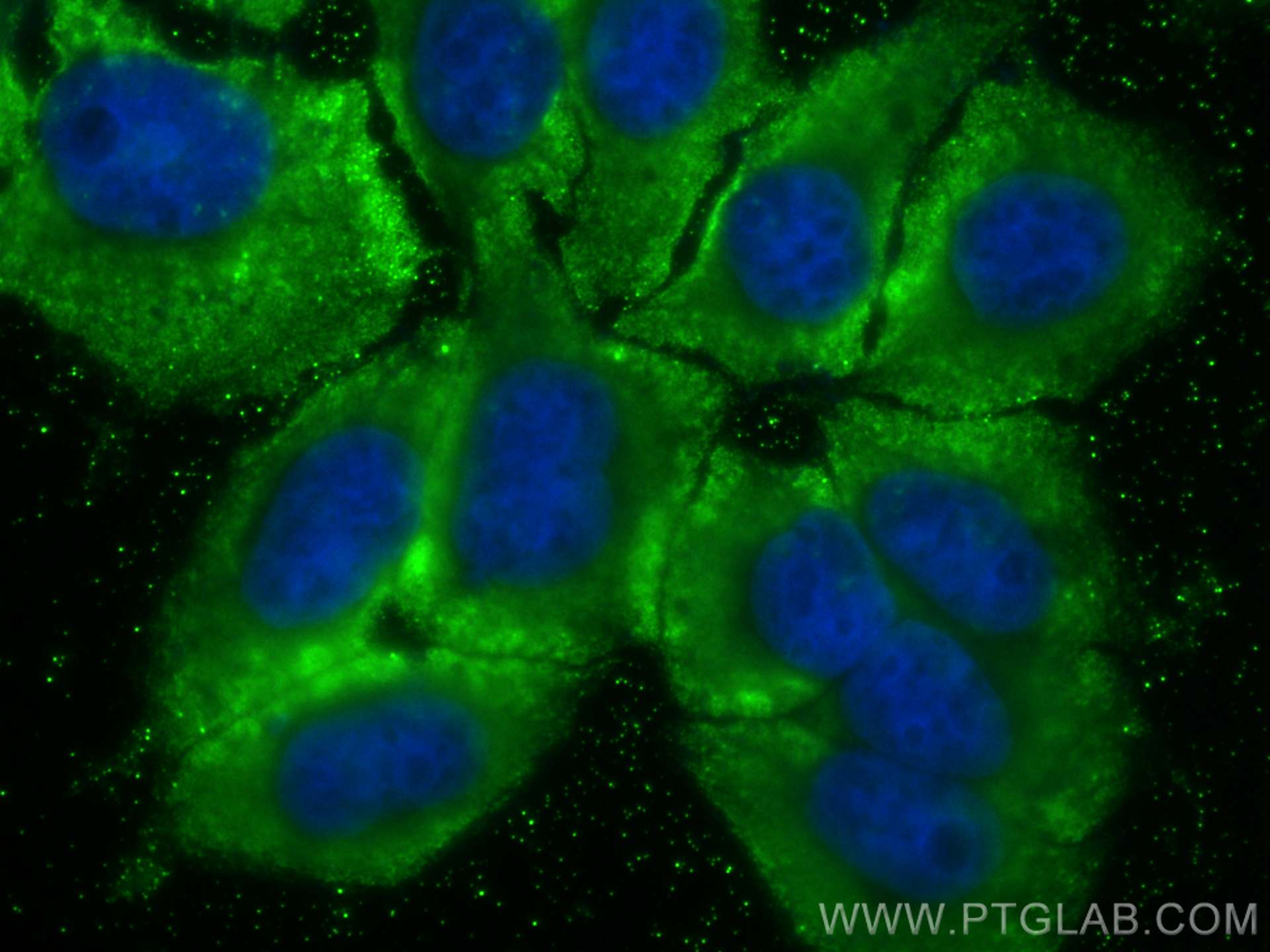Tested Applications
| Positive IF/ICC detected in | HepG2 cells |
Recommended dilution
| Application | Dilution |
|---|---|
| Immunofluorescence (IF)/ICC | IF/ICC : 1:50-1:500 |
| It is recommended that this reagent should be titrated in each testing system to obtain optimal results. | |
| Sample-dependent, Check data in validation data gallery. | |
Product Information
CL488-66176 targets USP13 in IF/ICC applications and shows reactivity with human samples.
| Tested Reactivity | human |
| Host / Isotype | Mouse / IgG1 |
| Class | Monoclonal |
| Type | Antibody |
| Immunogen | USP13 fusion protein Ag10506 Predict reactive species |
| Full Name | ubiquitin specific peptidase 13 (isopeptidase T-3) |
| Calculated Molecular Weight | 863 aa, 97 kDa |
| Observed Molecular Weight | 97 kDa |
| GenBank Accession Number | BC016146 |
| Gene Symbol | USP13 |
| Gene ID (NCBI) | 8975 |
| RRID | AB_2934450 |
| Conjugate | CoraLite® Plus 488 Fluorescent Dye |
| Excitation/Emission Maxima Wavelengths | 493 nm / 522 nm |
| Form | Liquid |
| Purification Method | Protein G purification |
| UNIPROT ID | Q92995 |
| Storage Buffer | PBS with 50% glycerol, 0.05% Proclin300, 0.5% BSA , pH 7.3 |
| Storage Conditions | Store at -20°C. Avoid exposure to light. Stable for one year after shipment. Aliquoting is unnecessary for -20oC storage. |
Background Information
USP13(Ubiquitin carboxyl-terminal hydrolase 13) is also named as ISOT3 and belongs to the peptidase C19 family. It is involved in ubiquitin-dependent protein catabolism. USP13 is responsible for MITF deubiquitination, utilizing a short hairpin RNA library against known deubiquitinating enzymes. This protein has 2 isoforms produced by alternative splicing.
Protocols
| Product Specific Protocols | |
|---|---|
| IF protocol for CL Plus 488 USP13 antibody CL488-66176 | Download protocol |
| Standard Protocols | |
|---|---|
| Click here to view our Standard Protocols |





